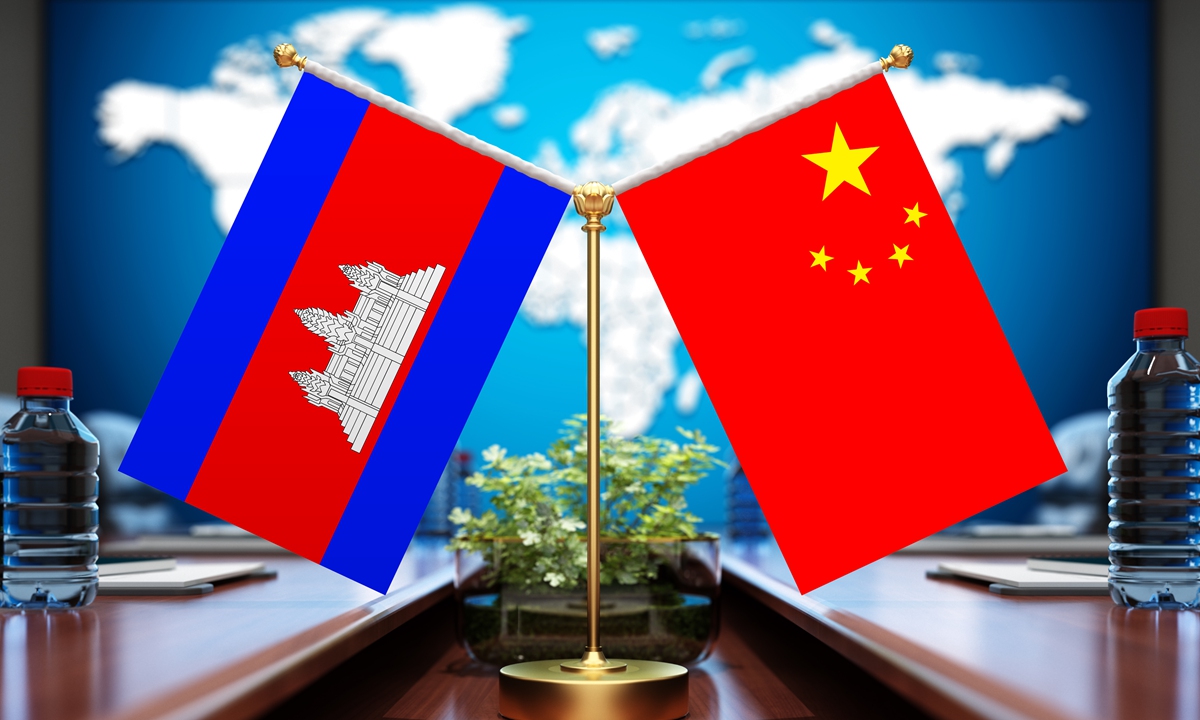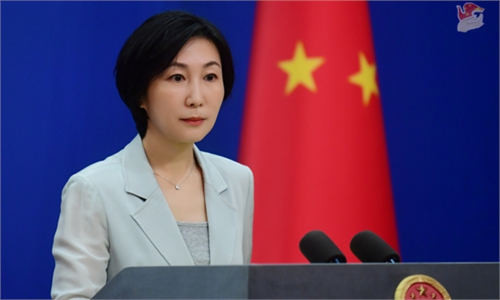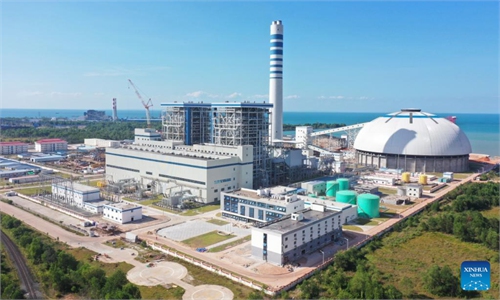China-Cambodia ties to be further improved with Hun Sen's visit, will 'encourage more in region to embrace potential for development, recovery'

China Cambodia Photo: VCG
Three years after his important 2020 visit to China that brought great support and encouragement to China while the country was in the middle of a tough fight with COVID-19, Cambodian Prime Minister Hun Sen has come to China once again to further boost bilateral ties, as this year marks the 65th anniversary of the establishment of the diplomatic relations between the two countries.
Chinese analysts said this visit shows the high-level political mutual trust between the two countries, and this is also a clear and sound signal to the region that cooperation between China and its neighbors will activate great potential for development, economic recovery and regional integration.
At the invitation of Chinese Premier Li Keqiang, Prime Minister of the Kingdom of Cambodia Hun Sen would pay an official visit to China from February 9 to 11, Foreign Ministry spokesperson Mao Ning announced on Monday.
Hun Sen is the first foreign leader to visit China after the 2023 Chinese New Year holidays, which reminds observers of his visit to China in February 2020 when China was at a difficult time.
Cambodia showed great support and gave a vote of confidence to China's fight against the deadly disease at a difficult time, so when China has successfully embarked on a new path to full-speed recovery, Cambodia will surely be an honored guest to not only celebrate and witness this progress, but also benefit from revitalization, regional integration and development, analysts said.
High-level political trust
Xu Liping, director of the Center for Southeast Asian Studies at the Beijing-based Chinese Academy of Social Sciences, told the Global Times on Thursday that Hun Sen's ongoing visit shows the high-quality and high-level political mutual trust in China-Cambodia relations.
The two countries support each other on affairs related to their core interests, and during the pandemic, both served as a great example of how "a global community of shared future" works in the face of a crisis, Xu noted.
Such a relationship will also become a role model for China's building of "a global community of shared future" with more neighbors and partners around the world, Xu said.
Li Haidong, a professor with the Institute of International Relations at the China Foreign Affairs University, told the Global Times on Thursday that "Cambodia is a regional country that has deeply benefited from its close ties with China."
Many cooperation projects and long-standing programs have stood the test of time and withstood challenges in past decades, showing that Cambodia is a trustworthy partner and that its leaders have strategic foresight, Li said.
Chinese analysts said that during Hun Sen's trip, China and Cambodia will make a series of achievements and breakthroughs in the fields of politics, production, agriculture, energy, security as well as cultural and people-to-people exchanges.
Boosting economic development and activating a full-speed recovery is one of China's clear tasks this year, from which many of China's neighbors will benefit and accelerate their own recovery. Cambodia is one of them, and it holds high expectations of further upgrading ties with China in 2023, experts said.
On Monday, Cambodia saw the arrival of the first group of tourists from China after a three-year hiatus due to the COVID-19 pandemic, the Xinhua News Agency reported.
A plane carrying a group of some 140 Chinese tourists landed at Phnom Penh International Airport on Monday afternoon from the southern Chinese city of Shenzhen, and the tourists received a warm welcome from Cambodian tourism officials and tour operators, said Chhay Sivlin, president of the Cambodia Association of Travel Agents.
"We're very happy to receive the first batch of Chinese tourists in a group tour today," she told Xinhua. "Their return is crucial to helping boost the recovery of our tourism industry."
The Southeast Asian nation is projected to attract at least 1 million Chinese tourists in 2023, said Cambodian Tourism Minister Thong Khon, Xinhua reported.
Xu said that in addition to tourism, China and Cambodia will jointly deliver more benefits by further implementing bilateral free trade agreements and the Regional Comprehensive Economic Partnership (RCEP), and will further their cooperation in fields such as infrastructure construction and energy.
"By developing a successful bilateral relationship, China and Cambodia are telling the world that China and many countries in the region have a traditional friendship, share similar development ideas and have consensus on important international issues," Xu said.
Some external forces have tried to coerce China's neighbors to "decouple" from China, but their attempts are doomed to fail. External disruptions cannot shake the momentum of regional integration, which brings win-win outcomes to all regional members, Xu noted.
Some Western media outlets, and US media in particular, have spared no efforts in hyping the "debt trap" in order to smear China's cooperation with its neighbors and partners under the China-proposed Belt and Road Initiative, but those tricks and lies will eventually be exposed as meaningless in front of concrete projects, substantial development and prosperity, said experts.
Hyping the clichéd "debt trap" claim only shows that Washington is getting increasingly anxious as it fails to stop regional countries building a global community with shared future and become more resilient to its trouble-making efforts, Xu noted.




